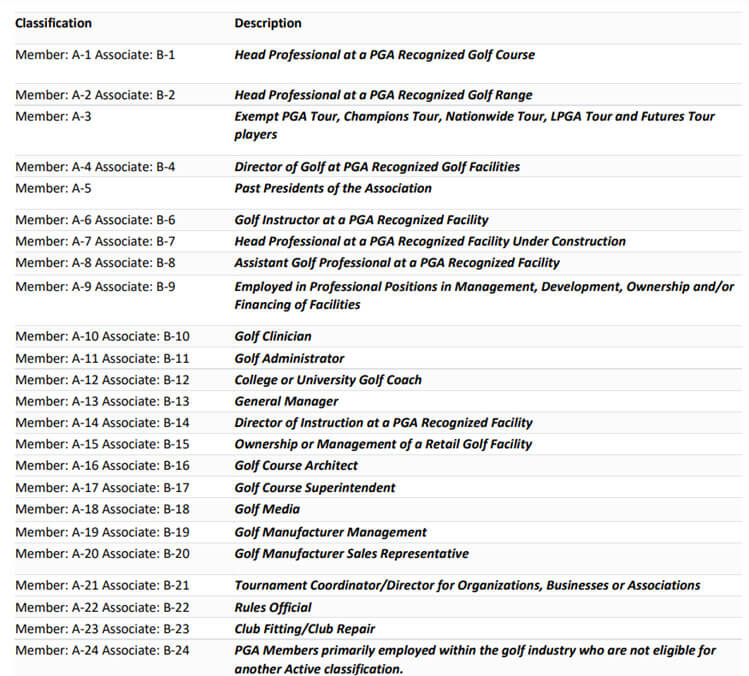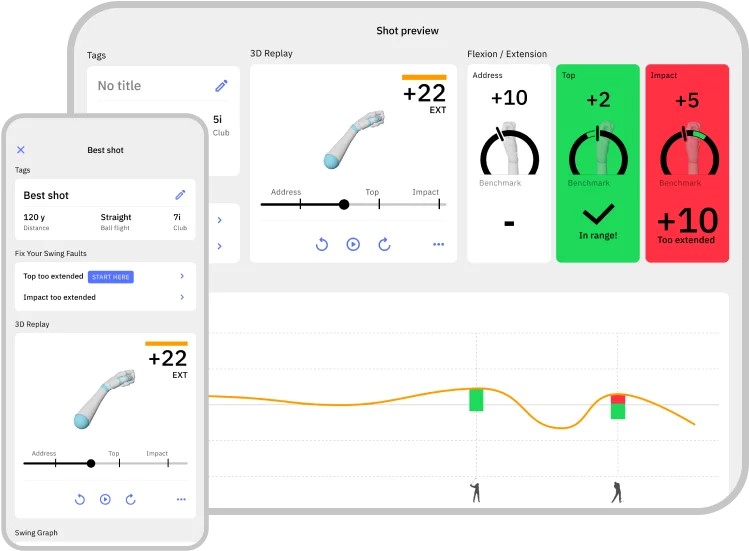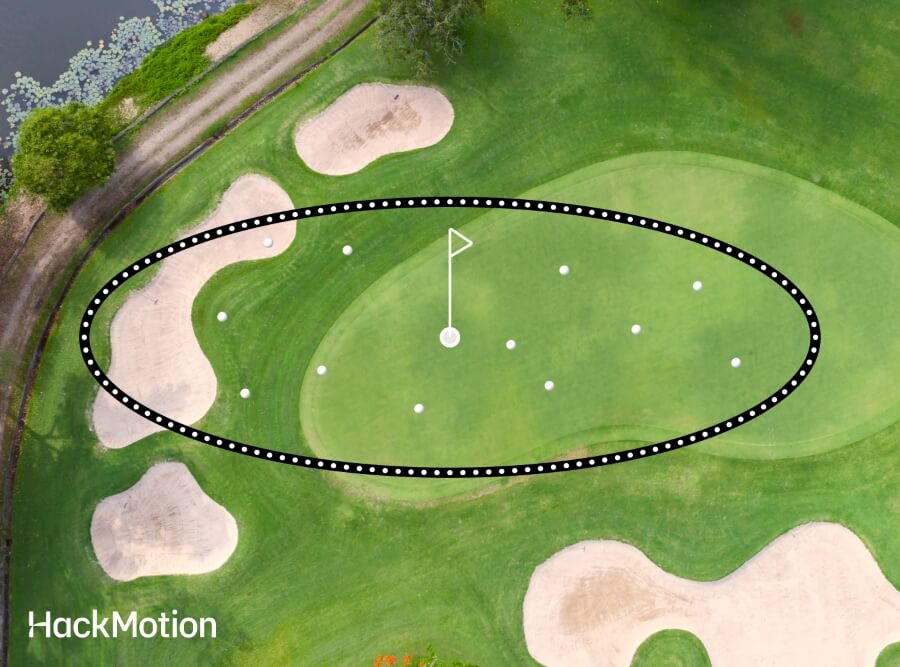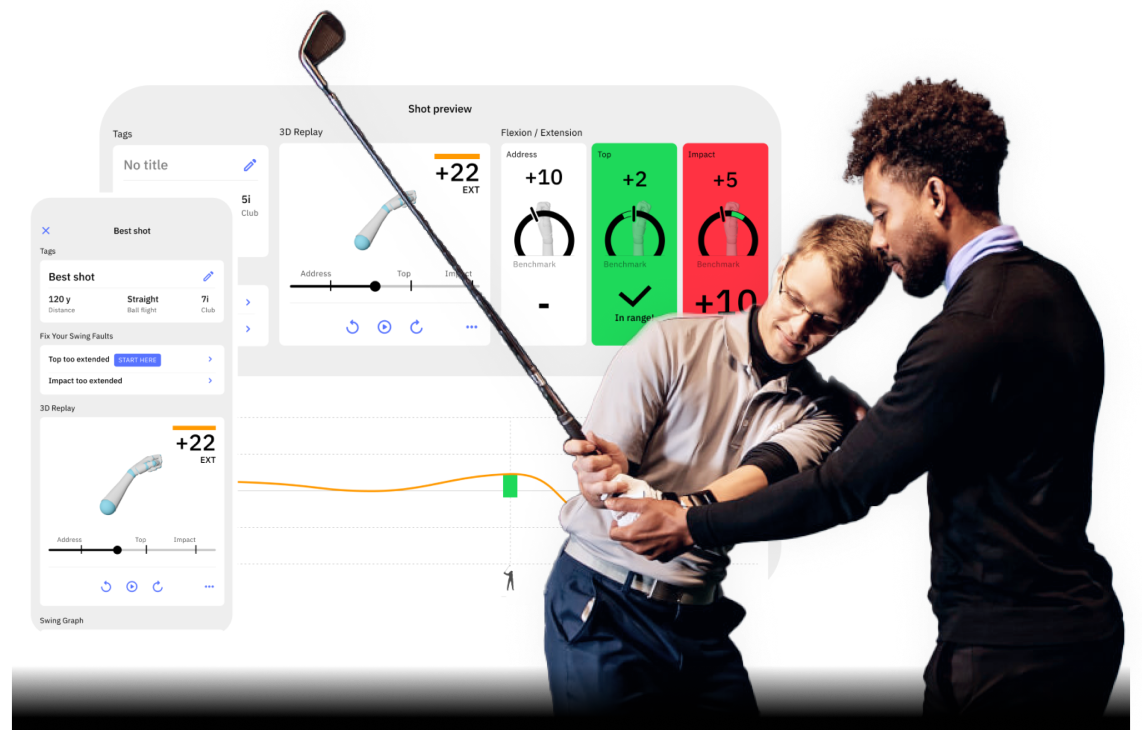How to Become a Professional Golfer – It’s Not Easy But is Possible!
For many fans of the game, an occasional daydream, where they make the winning putt at the Masters, US Open, PGA Championship, or Open Championship is a given.
For a small percentage of golfers, the chase to be a Professional Golfer is something that is pursued.
Getting to the level of playing the game at the highest level is very difficult, but surely isn’t unattainable.
In this article, I will talk about several items related to becoming a professional golfer.
In a nutshell, here’s what you can expect to learn from this article:
- The difference between a professional golfer and a golf professional.
- The various roles in the golf industry and how to break into them.
- Different pathways to becoming a professional golfer.
- An overview of the professional golf tours beyond the most well-known ones.
Contents
The Difference Between a Professional Golfer and a Golf Professional
As a long time PGA Professional, I very often see the confusion that exists among the average golfer on what a PGA Member is versus a PGA Tour Professional.
The fact is, I do not play the game for a living as a PGA Member. A PGA Tour Professional plays the game for a living.
PGA Professional or Golf Professional
As a member of the PGA of America, I am one of 29,000 members and associates that work within the industry on the business side.
In that role, I am a Golf Professional. There are a multitude of positions within the industry that PGA Members work in.
For example, I am a Coach and Director of Instruction for the academies that I own. I am also the Executive Director of our youth golf nonprofit. I am also a freelance golf writer.
I am like many modern golf professionals in having a variety of hats I wear. None of which has to do with playing the game.
The PGA of America has 24 member classifications.
These cover a multitude of different titles that one could have within the industry.
You can see all of the PGA Classifications below.

Becoming a PGA Member requires going through the PGA of America Associate Program.
There are three ways you can do this.
The Traditional PGA PGM Program
An award-winning educational program designed for aspiring PGA Professionals that focuses on the People, the Business, and the Game.
Associates must be employed in the golf industry in order to register.
There is a playing ability test, and a three-level work study program to follow.
Associates will be tested after each level’s work is completed.
The program can take up to 8 years to finish.
The PGA University Program
A PGA of America accredited college degree program. Upon completion, an associate earns a Batchelor’s degree, and their Class A PGA Membership.
There are 18 major universities that have the PGA University Program.
PGA Affiliate Program
For those that want to become a PGA Member but are not yet working in golf.
Beginning in the Affiliate Program allows an Affiliate to complete Level 1 of the PGM program.
There are many regions and countries around the world, such as Canada, the UK, Asia, and more that have professional golf associations.
One of the largest organizations that manage many of these organizations is the Confederation of Professional Golf.
Each country or region has their own pathway to becoming a certified golf professional.
Those that do work in the golf industry as a golf professional, or in some of the countless other facets of the game do not need to be a PGA member.
However, as a PGA member myself, I would highly recommend becoming a certified member of the PGA of America or your home country’s PGA organization.

What is a Professional Golfer, or Playing Professional?
For those that aspire to play golf professionally, there are a multitude of ways to make this happen.
But it is not at all easy.
As I mentioned in the opening, according to the Professional Athlete Index, only one out 51,346 become a professional golfer in the United States, and the U.S. actually produces the highest percentage of top-tier golfers globally (23.09%).
To start, I wanted to once again clarify the difference between a Professional Golfer and a Golf Professional.
According to Wikipedia, a Professional Golfer is…
“Somebody who receives payments or financial rewards in the sport of golf that are directly related to their skill or reputation. A person who earns money by teaching or playing golf is traditionally considered a “golf pro,” most of whom are teachers/coaches. The professional golfer status is reserved for people who play, rather than teach, golf for a career.”
In golf, unlike other sports, there is a very defined hard line between a Professional and an Amateur golfer.
The United States Golf Association defines this very clearly. If you play for money, for the most part, you have declared yourself as a Professional.
To learn more about the USGA Rules of Amateur States, you can Click Here.
Where do Professional Golfers Play?
There are countless places where the best golfers in the game can go to play professionally.
Some of those include the following:
PGA Tour
- Korn Ferry Tour
- PGA Tour Latinoamérica
- Mackenzie Tour-PGA Tour Canada
- PGA Tour Series-China
- PGA Tour Champions (50 years +)
European Tour/DP World Tour
- Challenge Tour
- Nordic Golf League
- PGA EuroPro Tour
- Pro Golf Tour
LPGA Tour
- EPSON Tour
- LPGA of Japan
- LPGA of Korea
- LPGA Legends Tour
For those that are just getting started in playing professionally, the usual starting point are the mini tours. These are basically a place to cut your teeth as you work your way up.
Eventually, for all those that play at this level, the PGA Tour or LPGA Tour will be the obvious ultimate goal.
The following are just some examples of the many mini tours that exist.
- Swingthought Tour
- Minor League Golf Tour
- Gateway Tour
- Cactus Tour
- Florida Elite
- Florida Professional Golf Tour
- Carolina Mountain Professional Golf Tour
- West Florida Golf Tour
What Does it Take to Consider Becoming a Professional Golfer?
Those who want to play professionally must ask themselves if their game is good enough to make it. They also need to ask if they have the time and the means to make it happen.
Those that make it at the professional level shoot under par with consistency at their home courses.
In fact, they really need to be able to go well under par in that familiar and casual setting of their home course.
Playing in a professional event raises the stakes, and the nerves.
So to be able to shoot several under par with your family and friends in a casual round, or even in a mini tour event is one thing. Being able to do that on the big stage is an entirely different thing.
In general, those that make it professionally start playing golf while they are young. Many start competing in junior golf events even before they are a teenager.
Having success at the junior level is definitely a prerequisite for future success. Not just at the local level either.
Those that make it are highly ranked as juniors and play in higher level events such as State Golf Association Championships, USGA Championships, PGA Junior Championships, and AJGA tournaments.
After success is found as a junior, continuing the progression would include playing high level amateur events and playing for a major college golf program.
The Progression After Amateur Success
College and High-Level Amateur Play Straight to the PGA Tour (Very Rare)
I had mentioned previously what was necessary at the amateur level to even consider playing at the professional level.
For those that find success at the NCAA Division I level, the PGA Tour recently instituted massive changes to its PGA Tour University program.
The original program started in 2020 and provided top NCAA seniors limited status on the Korn Ferry Tour.
Today, through recent approved changes by the PGA Tour Policy Board, all NCAA college golfers will have the opportunity to earn a direct path to the PGA Tour and its affiliate Tours.
College and High-Level Amateur Play to Mini Tours to Q-School (Common…but Hard)
As mentioned previously, many young and aspiring professionals spend time on various mini tours before making it to the big stage.
Even some more seasoned professionals play the mini tours. Some of those that do have seen short stints on the Korn Ferry Tour, Canadian Tour, or other higher-level tours.Most that play the mini tours will not make it past that stage.
The usual route to the PGA or LPGA Tour comes through Q-School.
Q-School is an annual collection of qualifying tournaments that professionals play in with the hopes of making it to the games highest level. The PGA Tour, Champions Tour (50+ years old), PGA TOUR Latinoamérica, Mackenzie Tour, or PGA TOUR Canada, and the PGA TOUR Series-China all have qualifying tournaments.
The LPGA Tour and ESPON Tour, which is the tournament series just below the LPGA Tour, also have qualifying school.
A limited number of qualifiers make it and gain full status on the PGA or LPGA Tour. Some, that do not gain full status, get some level of conditional or partial status. Either on the PGA or LPGA Tour, or on the secondary Tours.
For example, on the Champions Tour, the top 5 to get full status – top 30 get conditional status, with limited starts.
The DP World Tour, Asian Tour and other international tours also have their own qualifying tournaments.
Maintaining PGA Tour or LPGA Tour, or Champions Tour Status
If a golfer secures their membership status on tour, they must maintain that status each year.
This requires them to stay among the top money earners on the tour’s money or points list. For the PGA Tour that means staying at or below the 125 spot and for the LPGA Tour, the 100th spot.
Securing continued membership status can also be achieved by winning an event. Winning a PGA Tour and LPGA Tour event gets you a 2-year exemption.
Win a major on the PGA Tour or LPGA Tour and you get a 5-year exemption. 5 years is also the exemption for The Players Championship, and the FedEx Cup winner on the PGA Tour.
Other Ways to Play in PGA Tour or LPGA Tour Events
There are a handful of other ways to find your way into a PGA Tour, LPGA Tour, or DP World Tour event. The first is through Monday qualifiers. The second is through a sponsor’s exemption.
Monday Qualifiers
Monday qualifiers could in fact be a fast track for some to find their way into a Tour event. If you catch lighting in a bottle, you could even do the unthinkable…
In 2019, at the Valero Texas Open, Corey Conners won as a Monday qualifier. In 2015, Brooke Henderson won the Cambia Portland Classic off of getting into the field as a Monday qualifier.
Monday qualifiers, as the name implies, is a qualifying tournament that takes place on the Monday before a PGA or LPGA Tour event.
Other Tours offer this in some capacity as well. For bigger events, a pre-qualifier may take place prior to the Monday qualifier. Anywhere from the top 2-4 players get into the Tour event off the qualifier.
Invitational events, or next year’s elevated events on the PGA Tour will not offer qualifiers.
As in the case of Corey Conners or Brooke Henderson, as mentioned above, a Monday qualifier could catapult into stardom off of that rare win.
Sponsor’s Exemptions
In 2019 Matthew Wolff won the 3M Open. He did so on the heels of a sponsor’s exemption. That feat is not very common.
A sponsor’s exemption is simply that, an exemption into the event, by the tournament sponsor. This goes to a player that’s not already in the field through normal qualifying standards.
Usually, these exemptions go to a hot young player, or even an amateur. The amateur cannot be awarded the money they have otherwise won if they are lucky enough to make the cut.
Other times, a sponsor invite might go to a very noteworthy, and popular player that may be later in their career and is not in the field.
The Pro’s and Cons of Playing Professionally
Obviously, playing professionally, at the highest level is a dream for most that can get there.
The positives are countless. The money, equipment and apparel deals, fame, and a chance to make history each week.
The cons however are there too. Living a life on the road, the fear of losing your card and status, and the spotlight and fame might not be everyone’s cup of tea.
For those that are always trying to fight for status, especially on the lower level tours, the costs can outweigh the income. This is a norm for those playing on the mini-tours, or the secondary PGA and LPGA Tours.
It can be a great life but may not be for everyone.
In Summary
There are countless opportunities that the game of golf can provide for anyone wanting to make a living in it.
For those that really love the game, but may not be top-level player, there are plentiful career avenues that can be had.
For those that can really golf their ball, at a very high level, the road is tough. You have to work extremely hard, and find success early in life and as often as you can.
That is almost a prerequisite to be able to sustain a career playing professional golf. It’s doable but takes a very special player to realize the dream.














